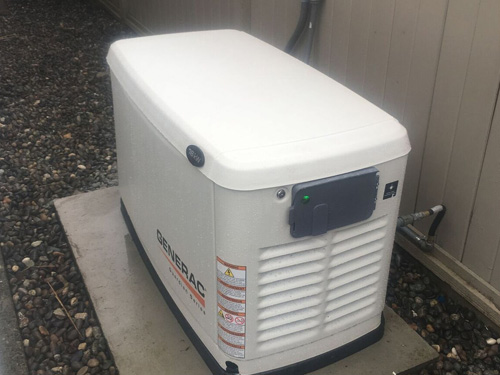PERIMETER BLOG
LATEST NEWS & INTERESTING FACTSWe’ve written a lot about paying attention to your home’s drainage in order to avoid a damaged water main or a flooded driveway. And a lot of times a simple eye test works fine and you can avoid any major problems.
For homes that experience frequent back-ups or water in their basements, or for owners seeking a little extra peace-of-mind, however, the market is producing helpful technology that can save us time, money and headaches in the long run.
The weather in the lower mainland is difficult to predict, so taking the guesswork out of the equation can help you sleep better at night when the rain starts to fall.
Here’s five of our favourite water drainage gadgets.
1. Alarm System Sensors
Hooked up adjacent to your hot water tank, a sensor will detect moisture on the ground in the event water seeps into your floor. Water interfering with your hot water tank can cause extensive damage or bursting. This is handy because your system can back up or flood in the middle of the night when you’re asleep or in the middle of the day when you’re at work.
And once the alarm goes off?
2. Automatic Shut-Off Valves
Specifically made for water main systems, an automatic shut-off valve is triggered by a sensor that turns your home’s water off, preventing a major flood in your home. Again, this is an important item to have in the event your main breaks while you’re not around.
Water shut-off valves are used at home as well as in offices, which is helpful to have if you’re not around for a couple days. Just imagine returning to work after a week to find your desk up to its drawers in storm water.
3. Pump System Alarms
A storm line is the elevation at which water flows outside of your home. For homes built with basements above the storm line, pumps aren’t required because water incorporates gravity to flow away from the house.
For basements built below the storm line, however, the risk of floods caused by backed up drainage pumps is escalated dramatically. Pump system alarms notify you when water levels are high so you can flush out your pump safely.
4. Duplex Panels
Control panels monitor electrical current, which can be switched off in the event of sudden heavy flow, causing your pump to switch off as well.
Duplex panels are used to provide double the protection against potential pump shut-down. With the panels operating and spreading out the wear of two pumps, the control is cycled back and forth between pumps, providing twice the life of a single pump system.
In other words, if one pump shuts down your system won’t back up immediately. Damaged pumps, even in a two-pump system, should still be replaced immediately.
5. Emergency Generators & Automatic Transfer Switches
What’s your first thought when the power goes out? Like me, you think it may be five minutes until it’s back on and the Netflix is up and running.
However, if you have a house that relies on pumps to keep the basement dry, those five minutes can be crucial.
An automatic transfer switch constantly monitors power to its control switch. When it senses that no power is present, it sends a signal to a natural gas generator to run it on. When the generator reaches proper operating speed, it sends a signal back to the switch to transfer to generated power.
The end result is you have your lights on, your wi-fi working and your pumps pumping while your neighbours are busy looking for candles.
Avoiding Unnecessary Risk
The risk of adopting a completely automated system is in the user. Just because you equip your home with panels, alarms, sensors and valves to prevent disaster doesn’t mean you’re off the hook when it comes to flushing your system and acting quickly if anything seems out of the ordinary.
Do that while amplifying your drainage protection with these gadgets, and you’ll be sleeping soundly, high and dry, in no time.

